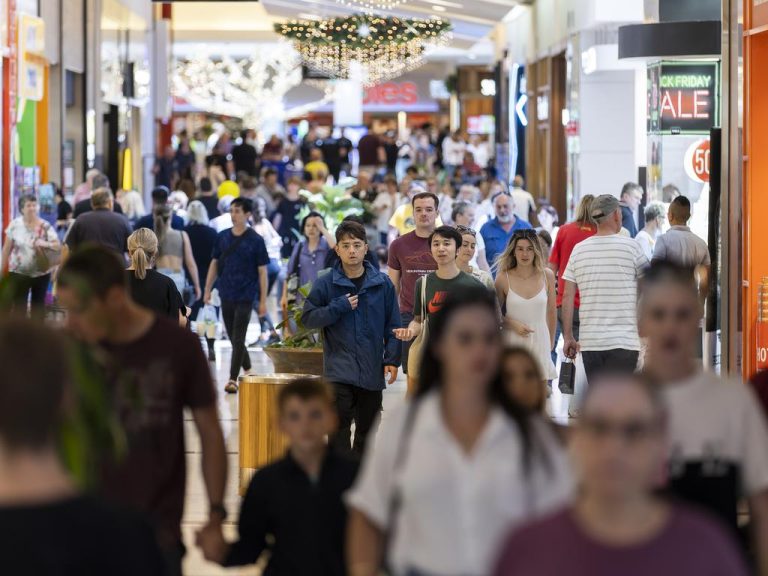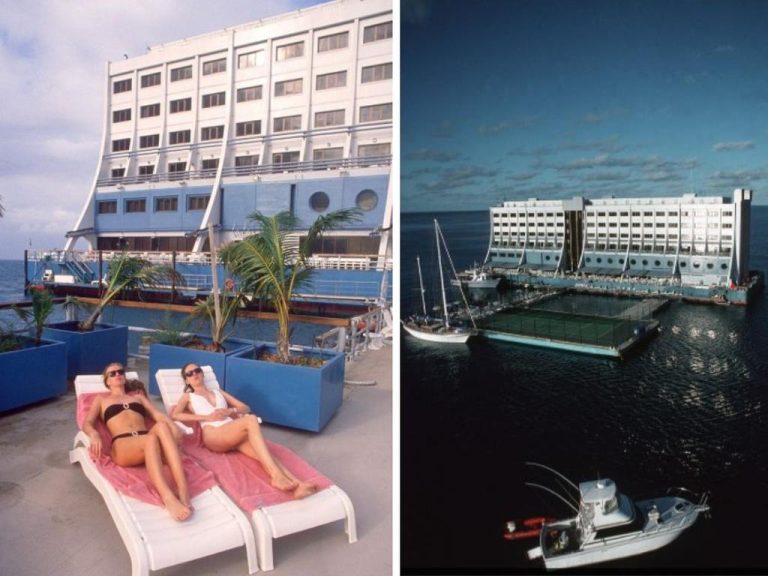Vertical Pastures: farming’s bold future has landed
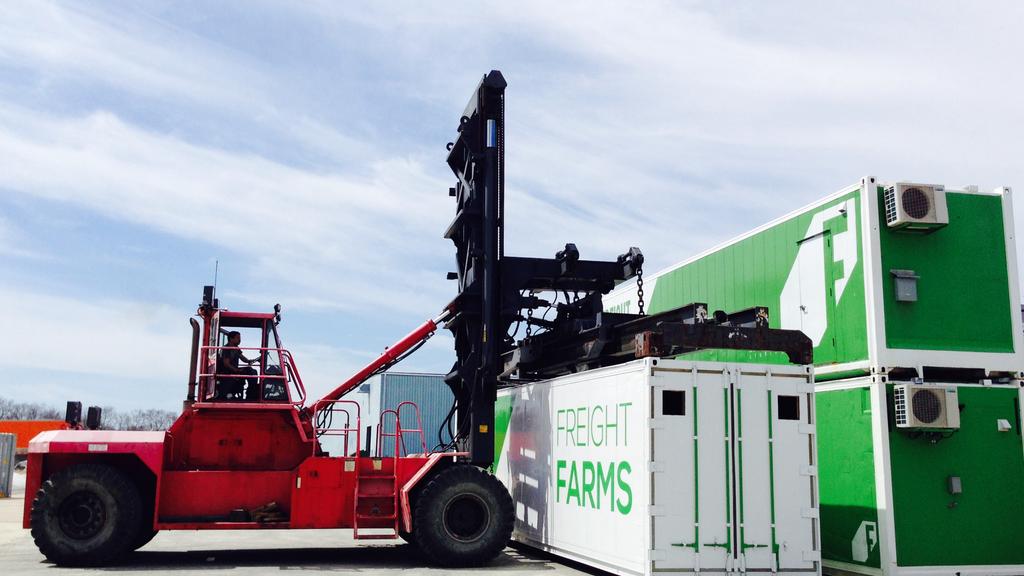
Hobart based Vertical Pastures Freight Farm is for sale. Picture: Supplied
A FARM in a container comes with many upsides, and there is one for sale in Tasmania.
Its representatives believe it is a one-of-a-kind of this size in the state.
The climate-controlled, insulated container farm — known as Vertical Pastures — measures 40-feet x 8-feet and 9.5-feet high.
Praveen Pant and Paul Scott from Tasmanian Business & Property Sales say it can yield up to the equivalent of over 1ha of farmland using only 18 litres of water per day.
“That is about 1 per cent of the water used in a traditional farm,” Mr Pant said.
MORE: ‘Spectacular’: East Coast island set to fetch millions
Hobart building inspector seeks industry shake-up
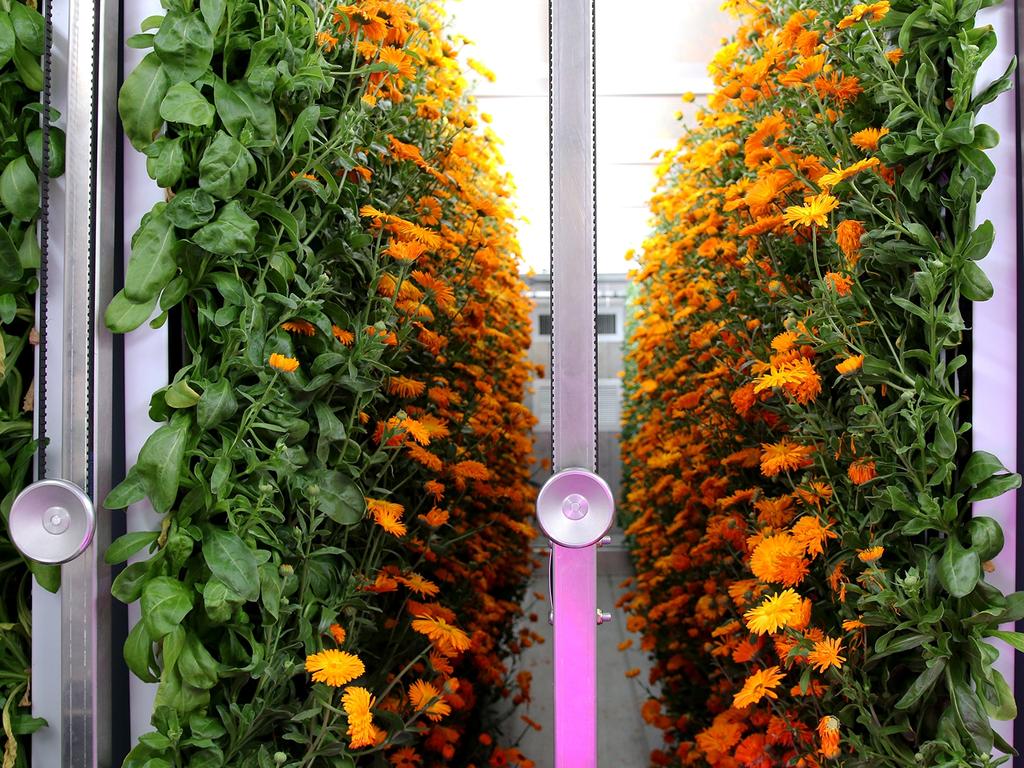
Freight Farm for sale.
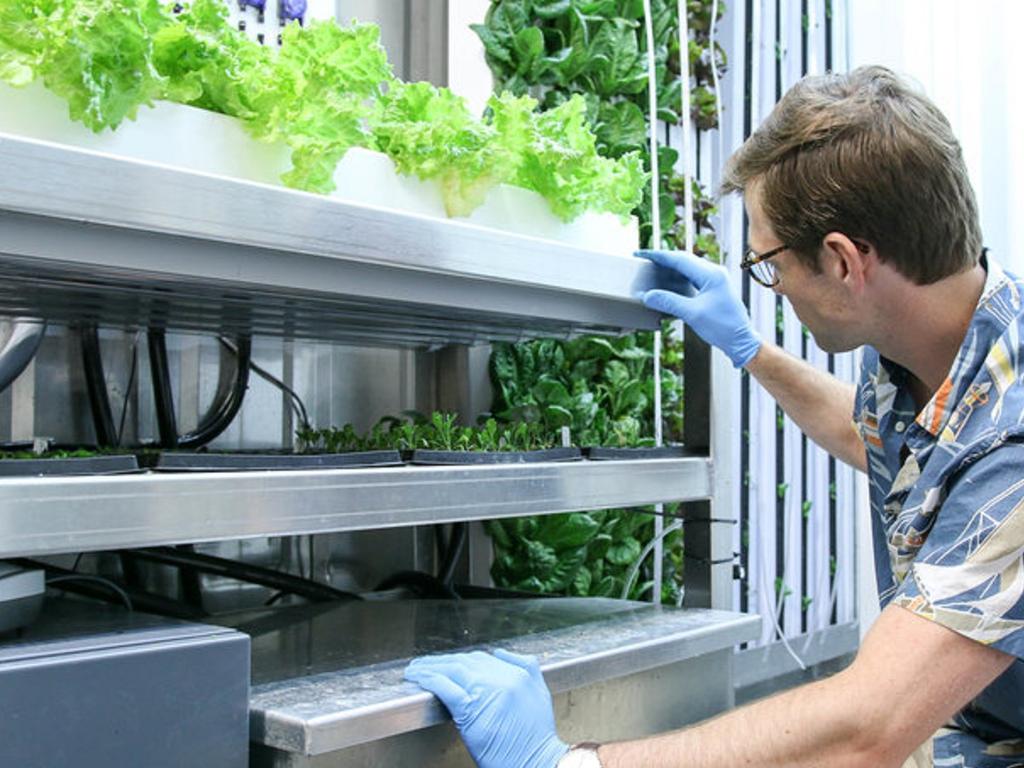
Freight Farm for sale.
There is no doubt that this is the future of farming, Mr Scott said.
“This system allows produce to be grown where it is going to be consumed, cutting down on carbon miles,” he said.
“The weather has no effect, while the perfect amount of water, nutrients, lighting and temperature can be applied.
“This ensures the owner can supply consistent quality and quantity.
“It would also be possible to produce products which otherwise could not be grown in Tasmanian conditions.”
MORE: Art Deco Hobart city building sale a ‘rare opportunity’
Rockliff family’s former farm for sale
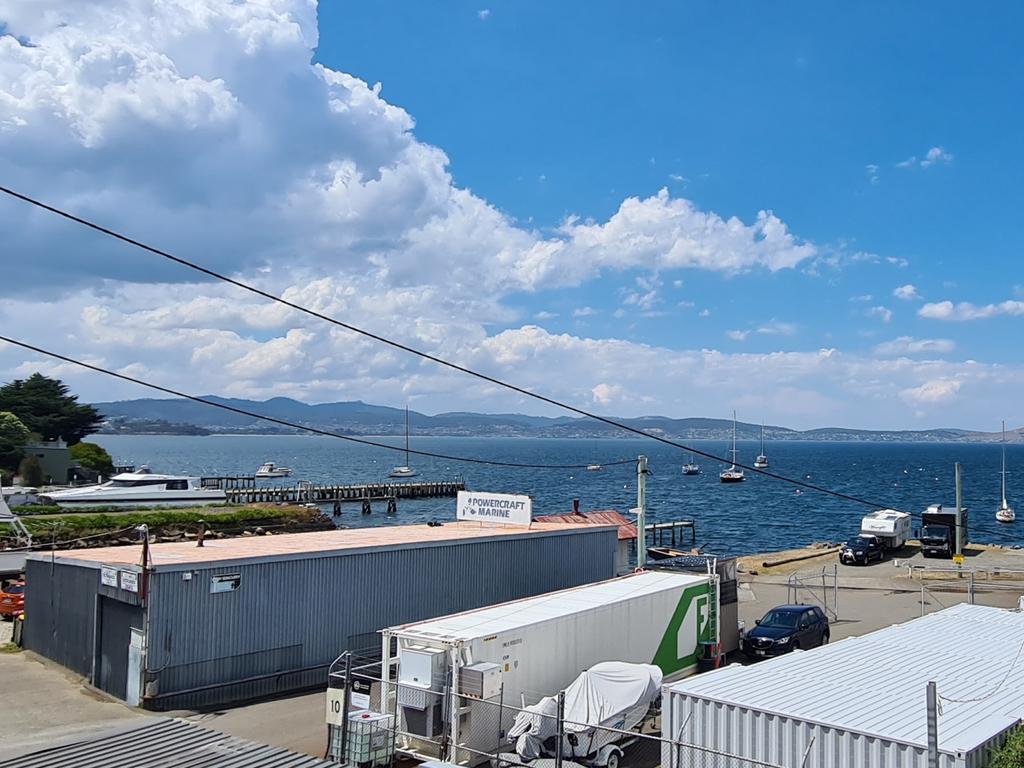
Vertical Pastures in Battery Point.
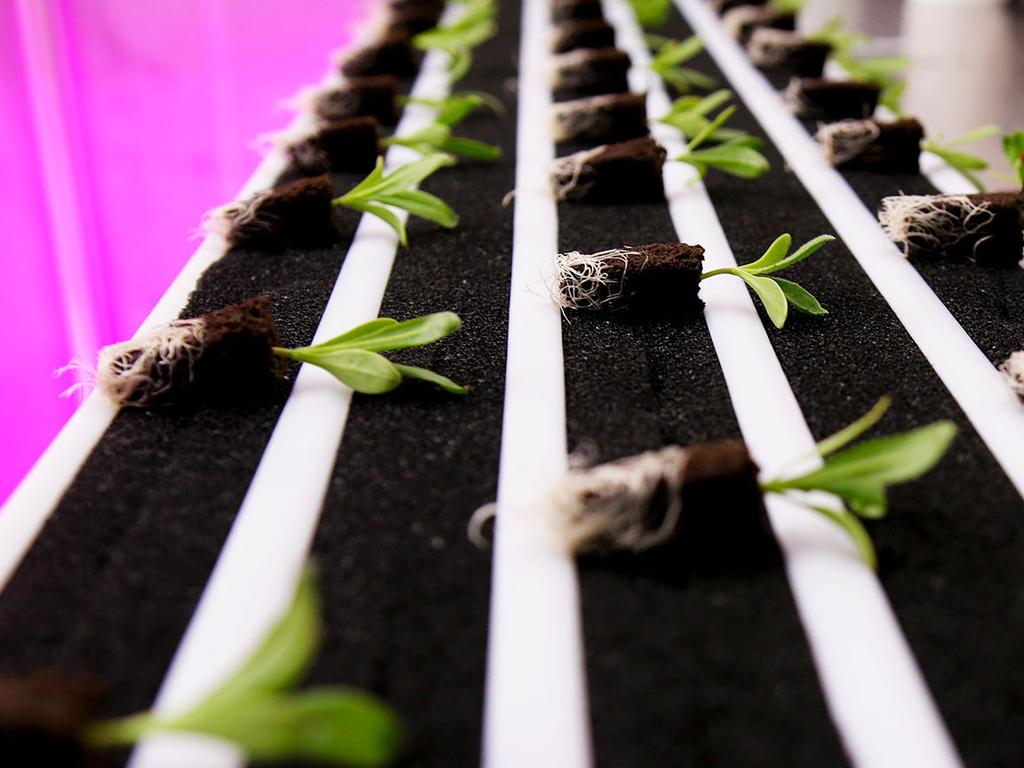
Freight Farm for sale.
The farm can house over 4500 plants at once, with LED lighting and custom water cycles encouraging growth.
The closed environment also keeps out any unwanted pests.
Mr Pant said a new hydroponic farm like this one — imported from America — would cost over $225,000, plus freight costs.
His vendor has it listed at a sharp “Offers over $149,000”.
“Our vendor is a chef, he imported a Freight Farm to grow his own produce and to sell to other restaurants over the past two years — lettuce and an assortment of other greens.
“He has put it on the market only because he is time poor.
“While the farm is not currently in use, it certainly has plenty of potential for the next owner.”
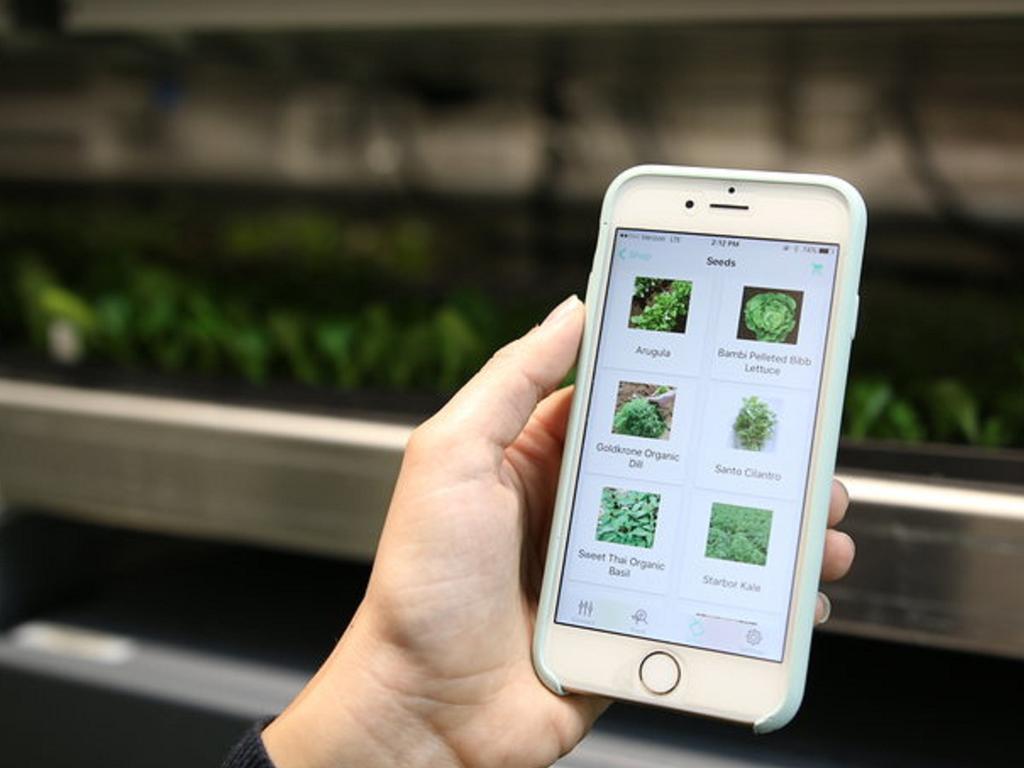
Freight Farm for sale.
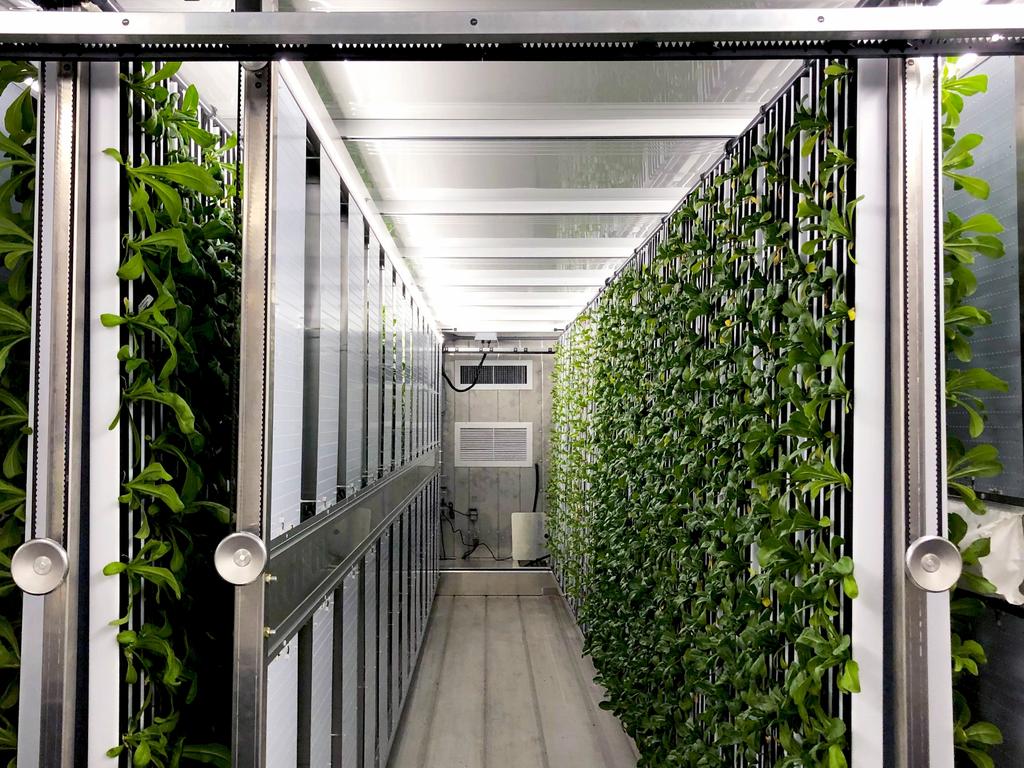
Freight Farm for sale.
The farm is located in Hobart and has been updated to meet Australian Standards.
Alongside hospitality venues like restaurants, cafes, vineyards and hotels, Mr Pant said this container farm may appeal to nursing homes, hospitals, schools or an individual who has enough space and the desire to sustainably produce their own food.
Mr Scott was once a mushroom grower and said about 25-30 per cent of their produce generated 50 per cent of income by attending farmer’s markets.
Markets could be a key income for the Freight Farm’s next owner, Mr Scott said.
“Hydroponics are the way of the future. If you have a business head on your shoulders, this farm offers a great opportunity,” he said.
“A mix of markets and high-end clients looking for top quality produce, that would be ideal.”

